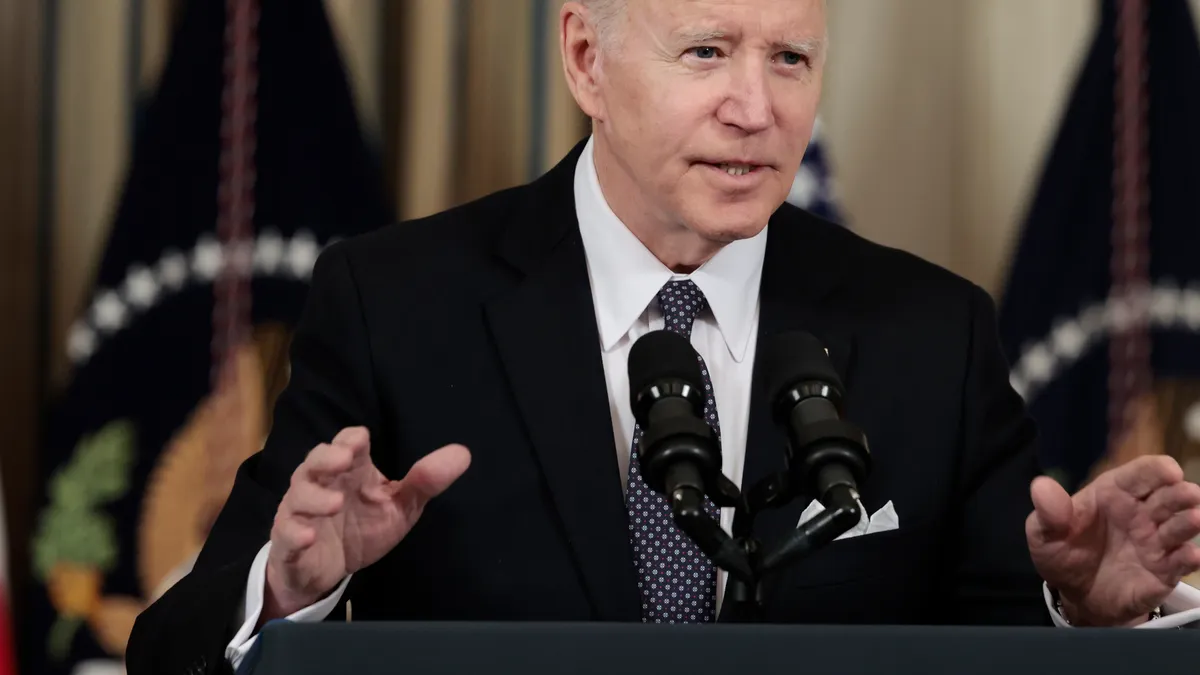Dive Brief:
-
Although President Joe Biden was expected to curb school choice growth, especially around private school vouchers, a report released by the Pioneer Institute shows Education Tax-Credit Scholarship, or TCS, programs continued to grow during the first year of Biden's administration.
-
Arkansas, Kentucky, Missouri and Ohio enacted these types of programs in 2021. Arkansas and Ohio enacted new tax-credit scholarship policies, while Kentucky and Missouri enacted the nation’s first tax-credit education savings account, which allows families to store unused funds for future education expenses.
-
In total, there are now 26 TCS policies and two tax credit education savings policies across 23 states, serving over 325,000 students, according to the report.
Dive Insight:
The school choice movement was already gaining momentum prior to the pandemic.
The Education Tax-Credit Scholarship, the most common form of private school choice, helps families pay for tuition and, in some cases, other education expenses.
"The pandemic has only accelerated this trend," said John Schilling, senior advisor for the American Federation of Children, in an email. Schilling attributed the spurt in school choice primarily to parents "incredibly frustrated by school closures and the inability of many public school districts to deliver education during the pandemic."
"This was indeed a primary driver for new and expanded school choice legislation in the states, and also why support for school choice hit record highs," Schilling said.
When Biden was first elected to the Oval Office, some predicted he would inadvertently move the needle on school choice more than his predecessor by allowing constructive conversation despite openly opposing for-profit charter schools and voucher programs.
"School choice programs continue to proliferate during the Biden Era," said Michael Petrilli, president of the Thomas B. Fordham Institute, in an email. "It helps that President Biden and his team haven't made much effort to fight the expansion of private school choice — though they are doing damage to public charter schools via their regulatory authority."
On March 14, the administration proposed new rules for charter school expansion, including a requiremement showing they are making a "community impact."
The proposed rules would make federal funding "much harder to access," said Nina Rees, president and CEO of the National Alliance for Public Charter Schools, in an email.
The rules come while polls show a majority of voters, especially Black voters, support school choice.
"The big factor is what happens at the state level," Petrilli said, "and in red states there's little stopping the expansion of parental choice, especially as Republicans look to become the 'party of parents,' or so they say."












